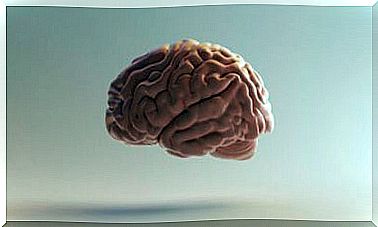Can We Trust Our Intuition?

There is a lot of material to help us in planning when solving problems, but what about what we call hunch? It is something that transcends reason. If we look in the dictionary of the Royal Spanish Academy for those terms related to hunches, the word “presentir” appears. The accompanying definition tells us about intuiting, guessing or having the impression that something is going to happen.
Yes, we have the ability to make decisions in a matter of seconds and not make mistakes. Therefore, it seems impossible that a mechanism that contributes in such an important way to our survival is governed by chance. Above all, if we take into account the number of times he gets it right.
The fragility of intuition
We know that we cannot always trust our first impressions. We all keep in memory several times when we have relied on them and it has failed. On the other hand, we also know that our intuition works with heuristics or shortcuts that, due to their globalizing and generalist nature, are far from being precise.

On the other hand, intuition has been a mechanism more associated with women (not in vain do we use the expression “female intuition” in popular language). Furthermore, it has always been thought of as something “magical”: a skill or a gift. However, despite the fact that part of science has not been able to explain certain situations, we do know that its operation has a closer and more understandable explanation than magic.
The association mechanisms that we have in our brain, many of them fast and fast, are at the base of our intuition. They are so fast because they are able to work with a large amount of information and because they can also do it in a focus away from the attention of our consciousness.
Can fast thoughts be influenced?
The story of Abbie Conant that Malcom Gladwell tells us in his book “Intuitive Intelligence” is not just a story of the fight against machismo in music. It is also a reflection of how intuition can be favored when reason gets in the way. Abbie played the trombone – historically male instrument – in Italy in 1980. She sent many requests for European orchestras and only the Munich Philharmonic Orchestra responded.
The audition was held behind a curtain because one of the applicants was the son of a person known to the jury. Abbie Conant played Ferdinand David’s Concertino for Trombone and missed a note. Although she came out pessimistic from the test, she was chosen by the court to be part of the orchestra.
Music experts recognized the quality of a performance within seconds. With Conant it was clear to them and after listening to the piece played by her they did not want to listen to anyone else.
The surprise for them was when they asked for the chosen trombonist to come on stage and a woman appeared on stage. A woman who in their minds could not have the ability to play that instrument. Despite being hired, they made her pass endless tests until she reached the courts to be recognized.
This is the example of how we can manipulate the environment to let the intuition flow. The curtain is the key in this story. By canceling the thought part, only the sensitivity and the pure remained. Without the curtain, Abbie’s courage would have been clouded by another of the ogres of intuition: prejudice.
The importance of clearing the way for reliable hunches
Despite what we have said, intuition is usually reliable when we have little time to make a decision. Imagine that they offer you to change departments in the company you are in and also tell you that it is a decision that you have to make urgently because they need to fill that position. In cases where those of us who do not have time to make a decision, relying on intuition is the most appropriate option.

It is also a good ally in processes in which there is a large amount of information. So much so that it is impossible to put it on a scale that we can calibrate with reason. In these cases, intuition, working in part away from the focus of our consciences, has a greater power to give us a solution based on such amount of information, without saturating our logical system.
Intuition is not free from being altered by cultural contexts, prejudices or uncontrolled emotions. In other words, it can play very bad tricks on us. Hence, we can turn it into a resource but never a unique solution. There are certain situations for which it is best, given enough time, to do conscious reasoning.
Finally, note that we can improve our intuitive process by trying to identify those quick associations it works with and putting them to the test. We can see to what extent the voters of a certain political party identify with a certain characteristic or to what extent the inhabitants of a certain country follow a custom that seems to identify them from the outside.
Improving and profiling these types of associations will make our intuition work more efficiently, since the fast associations that we will be able to count on in our brain will be more precise.









